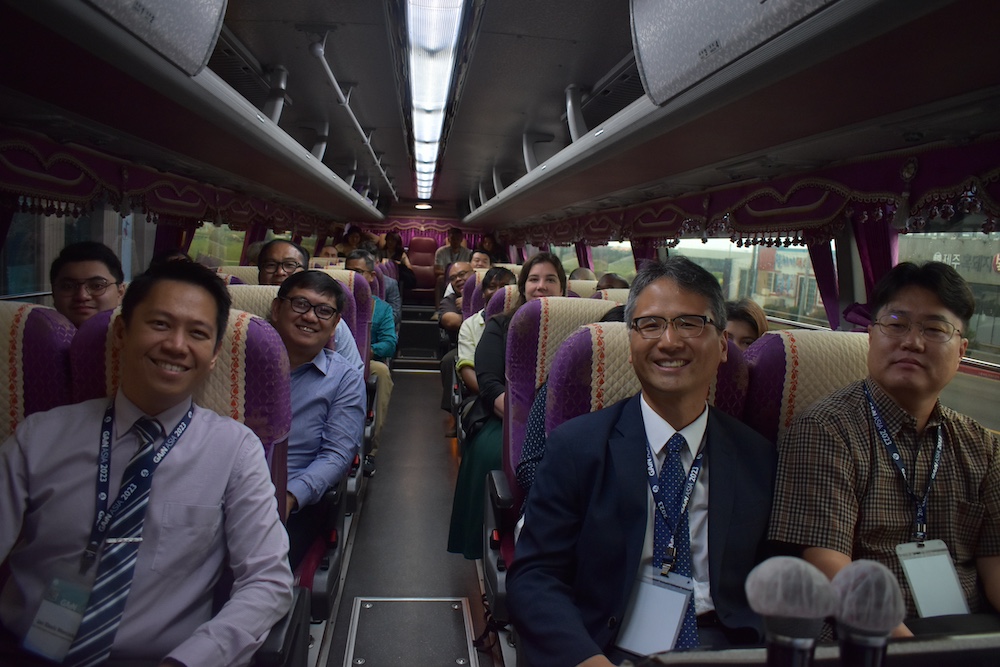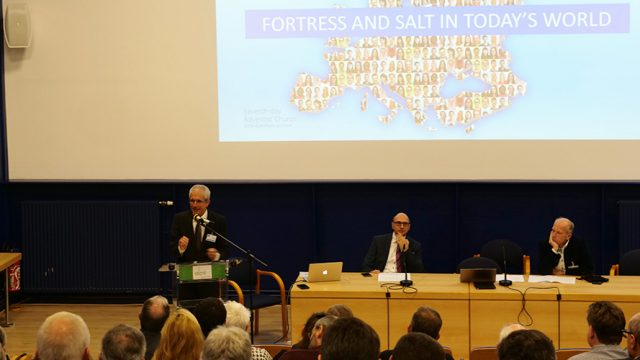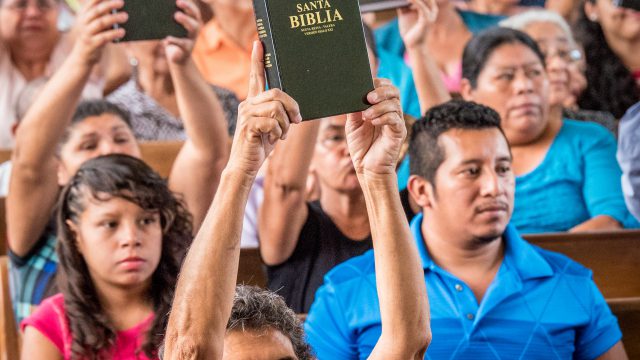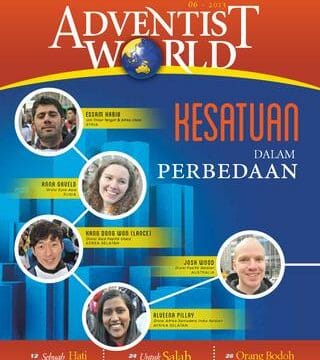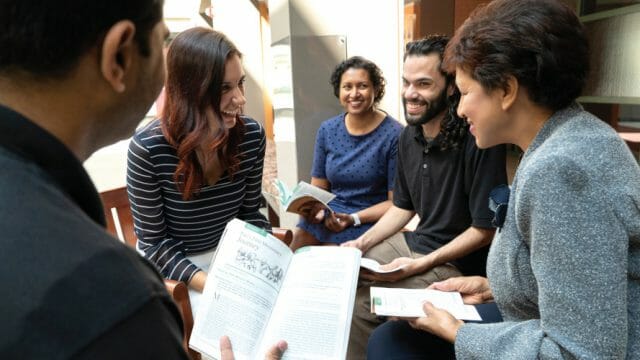A powerful Adventist synergy between generations is impacting the region for Jesus.

“I thought there would be more young people attending.”
ADRA Mongolia communication director Orgil Tuvshinsaikhan made that comment as he shared his take on the Global Adventist Internet Network (GAiN) conference in Asia. The gathering brought more than 230 Seventh-day Adventist communication and church leaders together in Jeju Island, Korea, in September for several days of training, networking, and worship.
New Generations Are Stepping In
Tuvshinsaikhan, his wife, Otgonbayar, and their friends Bilguun and Maral Nyamdavaa were part of the young delegation from the Mongolia Mission, a region of the world church where a significant percentage of church members are young. And despite his passing comment, the gathering of Adventists serving in radio, television, Internet, and press positions across Asia shows a steady trend toward younger, tech-savvy, and highly educated professionals.
Unlike many of the foreign pioneers of the past and then the first generations of indigenous missionaries, many of these young people serving in church communication roles seem to be better traveled, more experienced, and better prepared to tackle sweeping changes in the field of communication — Artificial Intelligence (AI) being the latest — and to use what they know or get to know for mission.
These young professionals were born in the era of computers and the internet. Many of them are too young to remember a time when cell phones were not available. And being online is for many not a luxury but the only way they know to move around and communicate.
National boundaries are also increasingly blurred. Young Indonesians speak fluent English with a marked Australian or British accent, depending on where they got their education. Several of them speak more than two languages and switch from one to the other easily, depending on who they are the talking to. Others scarcely talk, as their job is focused on writing, photography, video editing, or search engine optimization (SEO).
Geographical boundaries have become blurry too, as Adventist communication professionals work together in projects from offices across several continents and time zones: a digital evangelist based in the Philippines; a SEO consultant from Korea; a video editor from Malaysia; a content developer in Taiwan. Communicators across the continent combine their efforts with only one goal in mind, to share the good news of Jesus with more people, faster, and in more efficient and cost-effective ways.
At the same time, the Asian talent is underpinned by the new generation of global communication leaders. General Conference associate communication director Sam Neves, Adventist Review executive editor Justin Kim, and Hope Channel president Vyacheslav Demyan have many differences but one key element in common: the three of them are in their early 40s.
In a sense, the new generations of Adventist communicators are the future. But it’s not a distant future, not even a near future. It’s a future that is already here, as they redefine and deploy their seemingly immeasurable talents for mission.
The Voice of Experience
At the same time, many countries across Asia make a point of valuing the word and the advice of more experienced leaders. These are resilient professionals, who throughout their working lives had to adapt to the rapidly evolving challenges posed by changes in communication.
These leaders are the ones planning strategies, budgeting, and opening ways for younger professionals to revamp what they themselves began to do decades ago.
Several of them have extensive experience in mission and communication initiatives. There’s Mongolia Mission president Suk Hee Han, serving now in a challenging region. While studying in the Philippines two decades ago, Han participated in planning and launching the 1000 Missionary Movement initiative. Later he served at the regional SDA Language Institute, the Korean Publishing House, Adventist World Radio, Hope Channel, and Digital HisHands Mission Movement.
On the technological side, there’s Joo-Hee Park, recently elected president of Sahmyook Health University in Korea. A doctor of engineering and an experienced professor of medical information systems, Park has established what he touts as the world’s first metaverse education platform and has now embraced AI robot training for sharing Adventist beliefs.
This powerful combination of teamwork among the seasoned and experienced and the young and audacious to tackle new challenges is proving to be a game-changer for communication initiatives across the region. As the unofficial motto of the Adventist Church’s Total Member Involvement initiative proclaims, “Everyone doing something for Jesus.”
Against that background, for Adventist communication in Asia, the future couldn’t look brighter.


